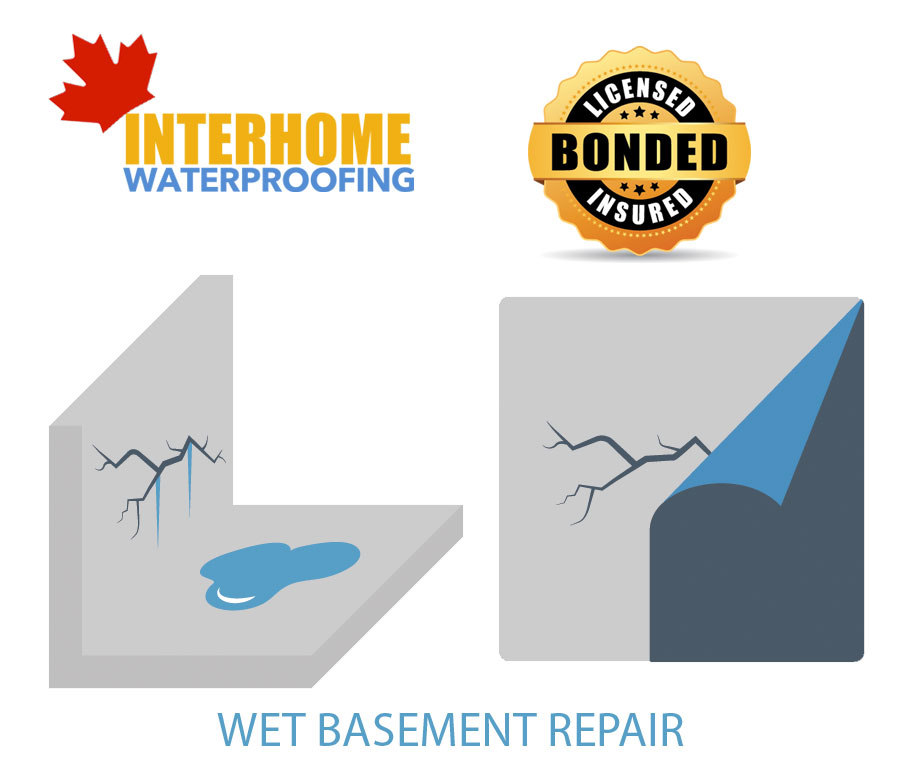The best building waterproofing in Toronto membranes have three different characteristics. They are elastic, tear resistant and flexible. There is

Home » Basement Waterproofing » Top reasons you basement is leaking

As we transition to fall and rainy days come it is a good time for you to check your basement for leaks. A leaky basement might not be a big deal right now but can become a costly emergency during the winter when frozen soil increases the hydrostatic pressure on your exterior basement walls and water from melting snow can enlarge any foundation cracks you may already have.
A wet basement is not only inconvenient, it is a sign that your basement walls have already some deterioration, and like every other part of your house, upkeep can save you money in the future. Sealing and filling existing cracks, or waterproofing your foundation is an investment that ensures the longevity of your property.
If you already have signs of a wet basement then give Interhome Waterproofing a call. We offer an on-site inspection and provide you with basement waterproofing solutions, from foundation crack repair to interior or exterior basement waterproofing systems, or the simple installation of a new sump pump. We serve Toronto, GTA and surrounding areas. Give us a call today to discuss your basement waterproofing needs: 416-836-5253
Book your free on-site inspection and consultation with one of our basement waterproofing experts.
The best building waterproofing in Toronto membranes have three different characteristics. They are elastic, tear resistant and flexible. There is
Did you know that flooding is the costlier natural hazard in Ontario? So much so that the provincial government has
When it comes to basement waterproofing, one solution doesn’t fit all. The age of your house/foundation, the depth, accessibility to